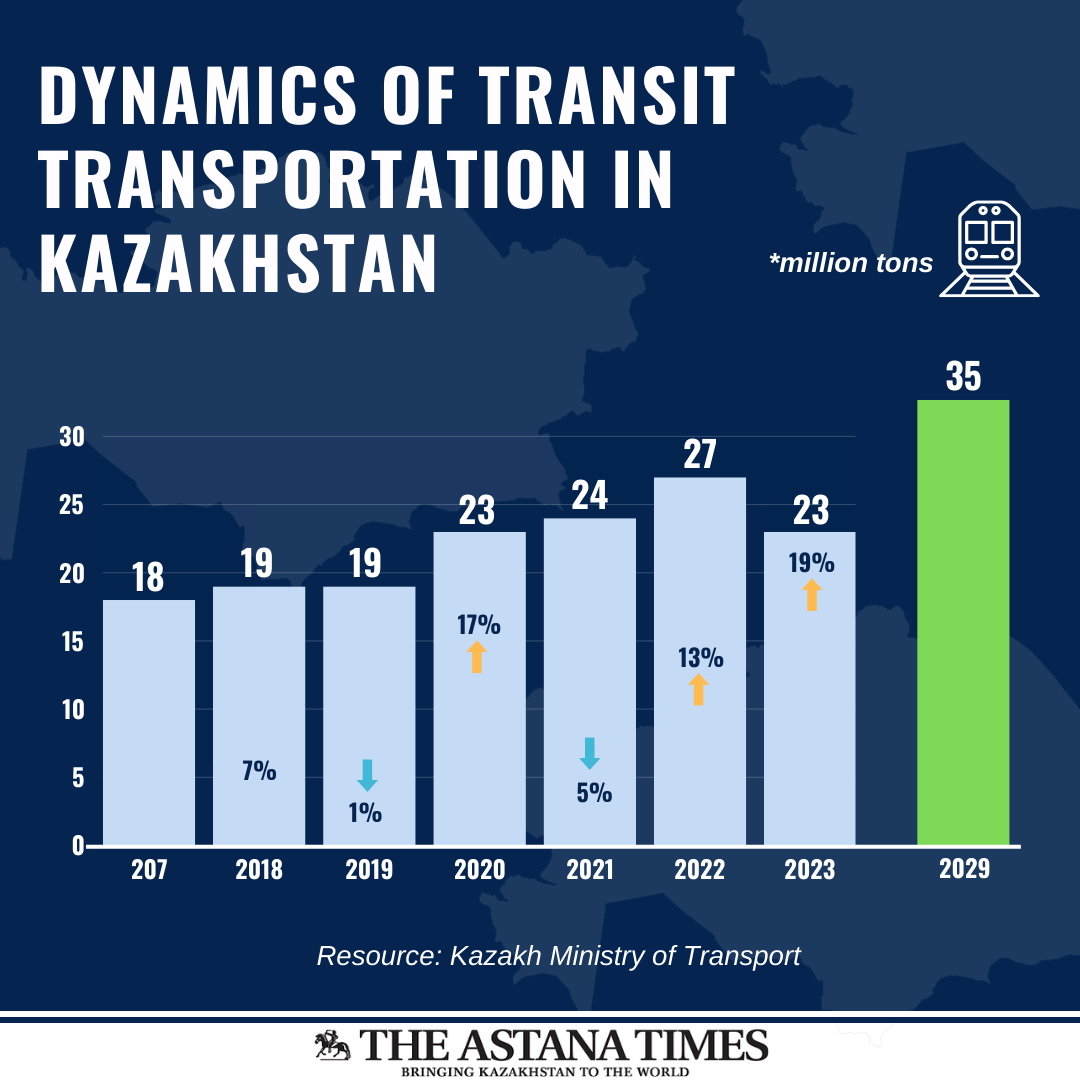ASTANA — Kazakhstan has witnessed a robust 19 % increase in transit traffic over the first ten months of 2023, reinforcing its role as a pivotal hub for Eurasian transit transport, according to a Nov. 30 Infrastructure in Eurasia monitor by Eurasian Development Bank (EDB).

EDB reports that the total volume of transit traffic during this period reached an impressive 22.5 million tons, with container transportation registering a 15% boost. The railways, a critical component of the nation’s transportation infrastructure, saw an overall cargo transportation increase of 3%, reaching 246 million tons. Simultaneously, the Kuryk seaport reported a substantial surge of 1.8 million tons in cargo handling, or 15%.
Looking forward, Kazakhstan has ambitious plans to further solidify its position as a critical player in transit transport. According to the EDB, by 2029, the nation aims to escalate the volume of transit traffic in both West-East and North-South directions to a staggering 35 million tons, including an ambitious target of 2 million Twenty-Foot Equivalent Units (TEU) in container transit.
One of the focal points of this strategic expansion is the augmentation of the North-South International Transit Corridor (ITC). Forecasts predict a 70% increase in capacity by 2027, reaching 15 million tons. The Trans-Caspian International Transport Route (TITR) is poised for exponential growth, with projections suggesting a tenfold increase in annual cargo turnover by 2030, reaching an impressive 20 million tons. This expansion plan includes a substantial increase in container transportation, with a target of handling up to 2 million TEU.
According to the EDB, Kazakhstan plans an extensive infrastructure development initiative to accommodate these ambitious goals. A total of 1,300 kilometers of new rail lines and 20 station tracks are set to be constructed. Additionally, 11,000 kilometers of existing railway tracks will undergo thorough repairs, ensuring the longevity and efficiency of the transportation network. To power this expanded network, Kazakhstan has plans to acquire 550 locomotives.
One notable project in the pipeline is the construction of the Darbaza – Maktaaral railway line, spanning 152 kilometers. This new line is expected to provide a significant throughput capacity of up to 10 million tons of cargo, further enhancing Kazakhstan’s transit capabilities.
The country is also committed to upgrading its Caspian Sea ports, increasing their collective capacity from 21 to 30 million tons. This strategic move will fortify Kazakhstan’s maritime capabilities, facilitating smoother connections between sea and land routes.
